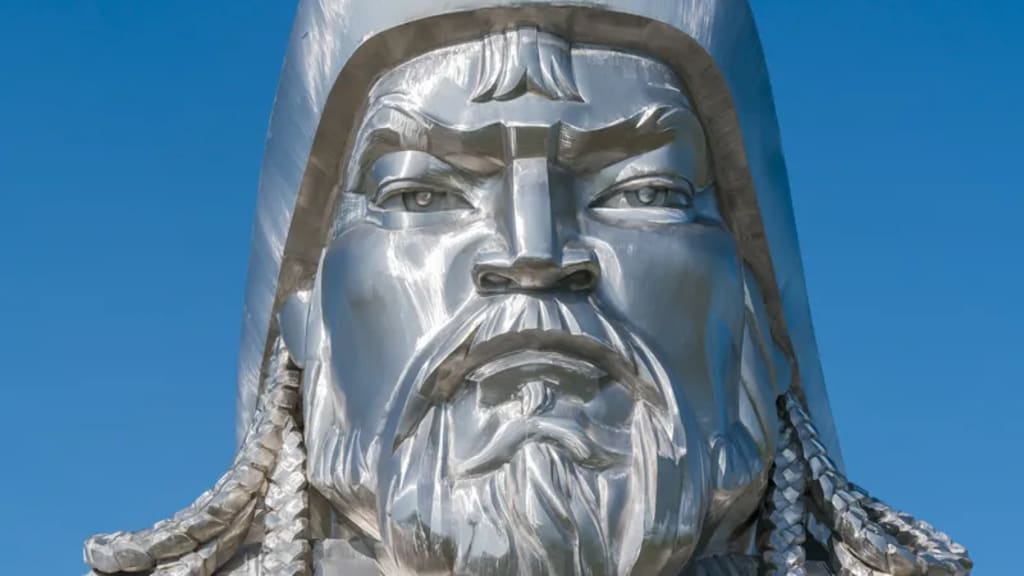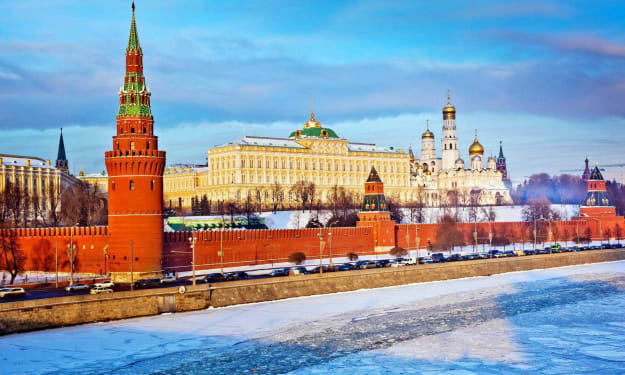Genghis Khan: Mongolian Terror
the history of world's ruthless emperor

"I am the punishment of god. If you had not committed great sins, god would not have sent a punishment like me upon you." Genghis Khan
Genghis Khan, the visionary behind the Mongolian Empire, is renowned as one of the most formidable conquerors in the annals of history. With his strategic military prowess, he successfully brought together the nomadic tribes of the Mongolian steppes, forging a fearsome cavalry that remains unparalleled to this day. His conquests led to the creation of the largest continuous empire in the world.
Temüjin, whose name meant blacksmith, was born in a nomadic tribe located in the eastern mountains of the vast grassland region of central Asia. His father, Yesügei, the leader of the ruling Borjigin clan, was tragically killed by a rival group when Temüjin was just a young boy of nine. Despite his lineage, the clan rejected Temüjin as their chief and expelled his family, leaving them vulnerable and unprotected.
The young warrior
Temüjin, as the eldest surviving son of his mother, stepped up to lead the family and quickly grasped the resilience required for their survival, all while scraping by on foraged food. He began to earn a reputation as a brave warrior: escaping capture by a tribe and recovering stolen horses for a local family. These acts helped him earn the loyalty of those around him. Temüjin understood the value of forming alliances. At 16, he married Börte, his father's chosen bride for him. He then used Börte's dowry to make gifts to his father's ally, Toghril, leader of the Keirut people. When Börte was kidnapped by the rival Merkits in 1184, Toghril not only provided Temüjin with an army but also helped forge an alliance with Jamuka, leader of the Tangut tribe, who also supplied an army. With these allies and forces, Temüjin successfully defeated the Merkits and rescued his wife. Despite having multiple wives, Börte remained his only empress.
Start of the Mongol Empire
From 1185 onwards, Temüjin initiated a series of brutal campaigns that ultimately brought together all the nomadic tribes in Mongolia, forming an unstoppable military force that laid the foundation for his empire. Temüjin's military brilliance and diplomatic tactics involved eliminating rival clan leaders and recruiting common people into his army. Despite forming alliances when necessary, he eventually turned against his former allies, including the tribes of Jamuka and Toghril. By 1206, the Mongol empire emerged from tribal conflicts and competition, under the leadership of its founder, now known as Genghis Khan ("Universal Leader").
Master conqueror
After establishing himself as the supreme ruler, Genghis Khan expanded his empire beyond the Mongolian steppe, conquering territories as far as Beijing in the east and the Caspian Sea in the west. His forces were known for their exceptional archers and lancers, who trained rigorously even during times of peace. With each rider having multiple horses, they could cover great distances swiftly and stealthily, making them a formidable force that conventional armies struggled to defeat.
The lasting legacy
Genghis Khan, the legendary ruler, went beyond the battlefields and proved himself to be an exceptional and just leader. He implemented a set of fair laws known as the Yassa code, which governed his vast empire. Recognizing the importance of trade, he fostered its growth and ensured regular censuses were conducted. To establish efficient communication, he devised a network of messengers who relayed vital information across the empire. What's more, he displayed remarkable cultural acceptance by embracing the traditions and religions of the nations he conquered, including Confucianism, Buddhism, Nestorian Christianity, Islam, and his own faith, Tengrism. Sadly, in 1227, Genghis Khan passed away during a military campaign, possibly due to a fever. As per his wishes, his body was secretly buried in the Mongolian steppe. Legend has it that anyone who encountered the funeral procession was silenced to safeguard the secrecy of his burial.
About the Creator
Enjoyed the story? Support the Creator.
Subscribe for free to receive all their stories in your feed. You could also pledge your support or give them a one-off tip, letting them know you appreciate their work.





Comments
There are no comments for this story
Be the first to respond and start the conversation.